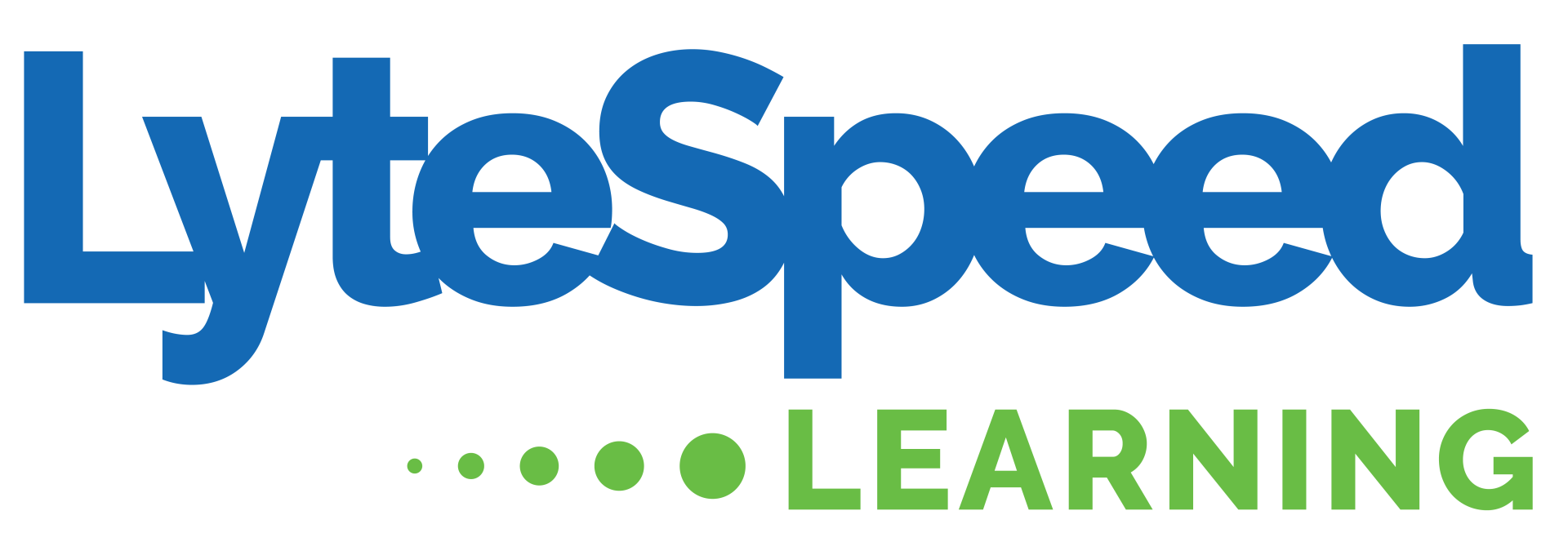We are at a stage in today’s economy where many people are thinking about changing careers. They’re looking for something that offers them flexibility, longevity, and of course: the chance to become wealthy. For many, the career that combines all of these opportunities is selling insurance.
In order to sell insurance in California, you must become licensed and pass a variety of tests and background checks. Different types of insurance require different licenses and processes. Today, we are going to talk about how to become an auto insurance agent. We will also cover other types of insurance in the future such as life insurance and commercial.
Please note, it is difficult to simplify it down in such a way that can be explained in one quick guide, and the rules can change. We will do our best to help educate you, but there may be some additional tasks and information that need to be completed when you’re reading this.
Who We Are
LyteSpeed Learning is a California state approved (California CDI Provider #65579) insurance prelicensing and continuing education course provider. We have the required insurance license courses that you need to obtain and retain your license in the state of California, all designed to help you easily understand and pass your tests.
Before starting LyteSpeed Learning in 1995, our leadership team also owned and operated their own highly successful insurance agencies. We know insurance, and are goal is to make sure that you know insurance too.
About Auto Insurance Licensing
When someone wants to become an insurance agent, they must first obtain their license. There is more than one type of license, however, and you must obtain the license of the product(s) that you hope to sell – meaning, a life insurance agent cannot sell auto insurance, and vice versa, unless they have obtained both licenses.
Auto insurance itself is not a license, but a product that can be sold under either one or two licenses:
- Personal Lines Agent – Personal lines are individual insurance products that are focused on individual and family items, like car insurance and homeowner’s insurance.
- Property and Casualty Agent – Property and Casualty licenses include all personal lines but also include commercial products, like commercial property insurance and general liability insurance.
There is also a “Limited Lines Auto” but this is typically not the license you want to obtain, as it requires similar work to obtaining a persona lines license. Very few people obtain limited lines auto insurance.
Between Personal Lines and Property and Casualty, you only need one of these licenses in order to sell auto insurance, and whichever license you choose, you’ll be able to sell other products as well.
Eligibility and Fit – What’s Required to Be an Agent
Before you can become an auto insurance agent, you have to meet certain requirements. These include the following:
- Minimum Age – You must be 18 or older. California residency is not required, as the state issues both resident and non-resident licenses.
- Character And Fitness – The Commissioner can deny a license if granting it would be “against the public interest,” or if the applicant lacks integrity or a good business reputation. These standards come from Insurance Code §§1668–1669. Felonies and specified misdemeanors are grounds for denial, though these can vary depending on the crime. The decisions can be made without a trial.
- Crimes Of Dishonesty / Breach Of Trust – If you have a felony involving dishonesty or breach of trust, federal law (18 U.S.C. §1033) requires the Commissioner’s written consent before you can work in the business of insurance. Without that consent, you are ineligible.
- Regulatory History – Prior insurance-related discipline (in any state) can be a basis for denial under the same character-and-fitness standards. This includes if you once sold, say, life insurance in a different state.
- Unlicensed Transacting – If you’re looking to gain a license retroactively because you have someone interested in insurance from you, that can be a significant barrier. Soliciting, negotiating, or effecting insurance without a license is unlawful and can itself be a disqualifying factor in later licensing decisions.
- Child Support Arrears – California law allows denial or suspension of professional licenses for delinquent child support until compliance is shown.
- Serious State Tax Delinquency – Licenses can be suspended for certain unresolved state tax debts under Business & Professions Code §494.5.
Bottom line: if you are 18+, with no disqualifying criminal or regulatory history, and without unresolved child-support or serious state-tax issues, you generally meet California’s eligibility standards to hold an auto insurance producer license. However, there may be other factors that affect licensure, and certain crimes may or may not prevent you from obtaining a personal lines or P&C license.
Agent vs. Broker
You will also need to decide if you’re applying to be an agent or to be a broker. Most people elect for a broker/agent license, but we’ll talk about the different details here.
“Agent” and “Broker” are two legally distinct terms.
An agent is legally tied to an insurance company. They must be appointed by the carrier before they can solicit or sell that insurer’s products. Once appointed, they act on behalf of that insurer, often with authority to bind coverage immediately. This relationship can come with many benefits:
- The agent may receive stronger support from the carrier.
- The agent may get better training.
- The agent may earn higher commission rates on certain products.
Agents who work for only one company are often called captive agents, while those appointed with multiple companies may be referred to as independent agents. The trade-off is that, as an agent, your ability to place business depends on the insurers with whom you have appointments. If you don’t have an appointment with a company, you cannot act as their agent.
A broker, on the other hand, represents the customer rather than the insurer. Brokers are not tied to one company. They can approach multiple carriers on behalf of the consumer to find coverage. By law, a broker cannot bind coverage themselves but must submit applications to the insurers for approval.
Brokers have more flexibility to access a wider range of markets, particularly through wholesalers or managing general agents (MGAs), but they are required to maintain a $10,000 broker bond and follow special rules if they charge a broker fee. Brokers are especially useful when working with non-standard or hard-to-place auto risks, since they are not limited to just the insurers that have appointed them.
Most individuals in California apply for the Property & Casualty Broker-Agent or Personal Lines Broker-Agent license. These combined authorities allow them to operate in either capacity, depending on the transaction. For example, if you are appointed with an insurer and sell one of its auto policies, you are acting as an agent. If you instead shop coverage on behalf of a customer without a specific appointment, you are acting as a broker. This flexibility is why the combined license has become the most common option.
The broker license IS a broker/agent license, so if you obtain the broker license you are also licensed to be an agent. But you can also elect to just be an agent.
Someone might choose to act primarily as an agent if they plan to build a close relationship with one or more carriers, value strong brand recognition, or want the ability to bind coverage directly. Others may lean toward the broker role if they want to market themselves as independent, offer broader consumer choice, or specialize in harder-to-place risks.
In practice, most new producers find that holding the broker-agent license provides the best balance: it gives them room to build insurer relationships while still being able to serve the customer independently when needed. It is much less common to choose only an agent only option. However, some people choose this because:
- A broker-agent must track which “hat” they were wearing on each transaction (agent vs broker). That means maintaining appointment records, broker bonds, broker-fee agreements, and disclosures correctly for each file. Some agents prefer to avoid that complexity and stick to only agent work, or only broker work.
- Captive carriers (like State Farm, Farmers, Allstate) require you to be only their agent. They do not allow you to act as a broker, so a broker-agent license would not provide you any extra ability in that environment.
- Errors & Omissions policies sometimes price differently depending on whether you’re strictly an agent or also a broker. Being a broker can mean a slightly higher risk class because you’re responsible for market selection, fee agreements, and placement with wholesalers.
- You will need to obtain the broker bond of $10,000, which adds to the cost of being an agent.
For these reasons, someone could choose to only be an agent, rather than a broker/agent. Even if you do not utilize the “broker” part of the license, you may still need the same bond/insurance. That may push some people to choose just an agent license.
What You Need to Complete to Become a Licensed Agent
Once you’ve determined what type of license you want (personal lines, P&C, or Limited Lines) and you are certain that you’re eligible, your next step is to complete your insurance license courses – known as pre-licensing.
There is an exam, which we’ll discuss in a moment, but one thing to understand about pre-licensing is that it is not just “what you know.” It is also how much time you spent learning it. That is why courses need to be timed, and that time needs to be logged.
You are not able to crack open a book and just learn what you need to do to take the test. You have to make sure that you have completed a specific number of hours that are associated with obtaining that license type.
This is where LyteSpeed comes in, as our courses are available online and time you, so that your hours of education are logged and can be verified and submitted to the state. You can find all of our insurance pre-licensing courses here or navigate to the courses that you need for your license:
Our courses use a program that times how long you spent learning the material, and are also designed by insurance agents to help you pass the exam. Our success rate is one of the best in the industry, with more people passing their exams on the first try than many other insurance license course companies.
Once you have completed the courses, the next step is the State Exam.
Exams are administered by PSI. Different tests have different questions:
- Personal Lines: 2 hours / 90 questions
- Property & Casualty: 3 hours / 150 questions
- Limited Lines Auto: 1.5 hours / 60 questions.
Official tests are provided by a company called “PSI Services,” which administers these tests on a schedule. Schedule online or by phone with PSI. You can find the list of exams, when to take them, and more on PSI’s website.
You must pass the test to obtain your license. If you fail the test, you can take it again, but you have to pay each time you take the test, which is at least $52 per test (this number may change by the time you read this).
If you fail 10 times in a 12 month period, you have to wait another 12 months before you can take that exam again. Please also note that your courses “expire” 12 months after you’ve taken them, so you may also need to take your insurance pre-licensing courses again.
Additional Steps Before Completion
Even after completing your exam, there are still a few last steps to take:
- You have to apply for the license. Passing the exam does not immediately grant you an insurance license. Applying for the license takes place through SIRCON.
- You have to submit fingerprints for a background check. This takes place through CDI’s “Capital Live Scan” portal. Your fingerprints are sent to the DOK/FBI.
- You have to choose between agent or broker/agent and, if you choose broker/agent, you have to file and maintain the $10,000 Insurance Broker Bond (Form LIC 417-5). Please note you may not act as an agent until the carrier files your appointment electronically.
- You have to pass the background checks and then wait for the application to be reviewed.
Once you have received a license, you also – and this is required – have to hang the license up conspicuously any office you work, and must put your license number on all materials.
Congratulations! You Are An Auto Insurance Agent!
You will still need to maintain your license, including taking continuing education courses every two years. We have these available as well here at LyteSpeed Learning. There is much more flexibility in what you learn and you are not required to take an exam after, so you can find the courses that interest you.
You will also need to follow the law, act ethically, and so on. But you will have an auto insurance license and you are ready to roll!
If you found this article useful, please share it with others! Your support is what helps LyteSpeed Learning grow.


